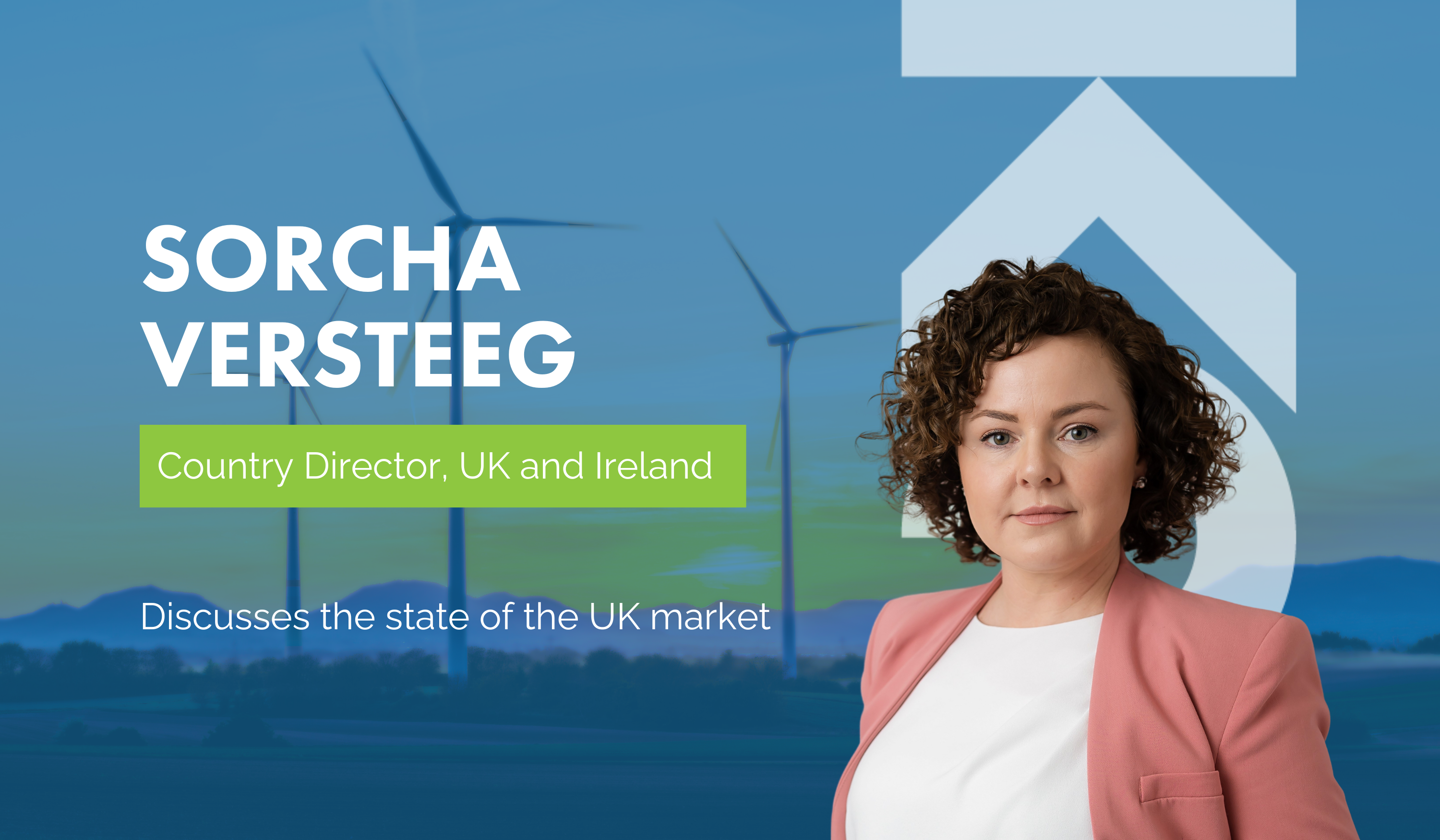
UK and Ireland Market Update
In the renewable energy sector, rapid innovation naturally introduces a dynamic working environment that presents a range of new challenges and opportunities. When we consider technological advancements, investor relations, evolving market conditions and more, it’s likely that the challenges once front of mind a few years ago are unlikely to be the most pressing of today. In the last six months alone, we have seen considerable movement in the industry, particularly within Europe and the UK and Ireland market – some of which I cover in this update.
Renewable Energy Developers Adapt Strategies Amidst Changing Market Conditions
As the lead for K2 Management for the UK and Ireland markets, I've been closely monitoring the recent developments and their potential impact on our industry. It's clear that we are navigating a complex and evolving landscape, with policy changes, market reforms, and shifting investor sentiment all playing a role in shaping the future of renewable energy in our region. Renewable energy developers in the UK and Ireland are adjusting their strategies in response to evolving market conditions. Recent policy changes, technological advancements, and shifting investor sentiment have prompted developers to re-evaluate their approaches to ensure the successful delivery of renewable energy projects.
Adapting to the evolving market
The UK and Irish governments have introduced several policy changes to support the growth of renewable energy. In response, developers have aligned their strategies with these policy objectives, however across the board all markets are seeing significant delays to actually delivering these key projects, which has resulted in widespread re-evaluation of strategy by developers. They are focusing on large-scale offshore wind, solar and hybrid projects, as well as exploring opportunities in emerging technologies like biomethane and green hydrogen. Developers are also engaging more actively with local communities to ensure public support for their projects, as mandated by recent policy changes.
One significant development is the delay to the Design and Monitoring Auction Platform (DMAP) in Ireland, which will consequently delay the finalisation of the ORESS 2.1 Terms and Conditions and auction timeline. We now expect the auction qualification to happen no earlier than the end of Q1 2025, with a minimum 3-month deferral. However, there remains scope for further changes depending on the finalisation of the DMAP and other key dependencies. The Department of the Environment, Climate and Communications (DECC) is moving to scenario 2 of the auction roadmap, reflecting the need for flexibility in these uncertain times.
Meanwhile, in the UK, the Review of Electricity Market Arrangements (REMA) is entering a phased implementation of reforms. While these reforms are necessary to adapt to the changing energy landscape, they are likely to face delays or even curtailment due to the upcoming general election. As an industry, we must hope that the Labour Party, if elected, will not see these critical reforms as a distraction from their broader agenda. Continuity and stability in energy policy are essential for fostering investor confidence and accelerating the deployment of clean energy technologies.
Technological AdvancementsInvestor sentiment towards renewable energy has been largely positive, driven by the global push for decarbonisation. However, recent market volatility and supply chain disruptions have led to some uncertainty. In response, developers are focusing on strengthening their financial resilience. They are diversifying their portfolios across different renewable technologies and geographies to mitigate risks. Developers are also exploring innovative financing mechanisms, such as green bonds and sustainability-linked loans, to access capital and demonstrate their commitment to sustainability.
Implications for the Market
The adaptability of renewable energy developers in the UK and Ireland has significant implications for the market. As developers align their strategies with government policies and embrace technological advancements, the pace of renewable energy deployment is expected to accelerate. This will create new opportunities for investors, suppliers, and service providers across the value chain. However, the focus on large-scale projects and the increasing competition for prime development sites may pose challenges for smaller developers. Increasing consolidation and collaboration in the industry is anticipated, with larger players and smaller firms coming together to expand their portfolios and strengthen capabilities.
Supporting the Delivery of Net Zero TargetsTo support the delivery of the UK and Ireland's net zero targets, a collaborative effort from all stakeholders is crucial. Here are some suggestions:
- Government: Maintain a stable and supportive policy environment, streamline permitting processes, and invest in grid infrastructure to accommodate the growth of renewable energy.
- Communities: Engage with local communities to raise awareness about the benefits of renewable energy, facilitate public consultations, and advocate for policies that support the transition to a low-carbon economy.
- Developers: Foster strong partnerships with local communities, prioritize sustainable development practices, and invest in skills development and job creation in the renewable energy sector.
- Supply Chain: Invest in innovation, capacity building, and the development of local supply chains to support the growing demand for renewable energy components and services.
By working together, stakeholders can create a conducive environment for renewable energy development, accelerate the deployment of clean energy technologies, and contribute to the achievement of the UK and Ireland's net zero targets. The renewable energy landscape in the UK and Ireland is undergoing significant changes, driven by policy shifts, technological advancements, and evolving investor sentiment. As developers adapt their strategies to navigate these changes, the industry is poised for growth and transformation. Through collaboration and concerted efforts from all stakeholders, the UK and Ireland can accelerate their transition to a sustainable, low-carbon future.
In summary, recent news releases indicate some strategic shifts among renewable energy developers. Some re-evaluating their offshore wind investments and entire renewable energy targets and others diversifying into onshore renewables and sustainable aviation fuel production and green hydrogen plans in the UK.
Written by Sorcha Versteeg, Country Director (UK & Ireland). For more information, visit:

